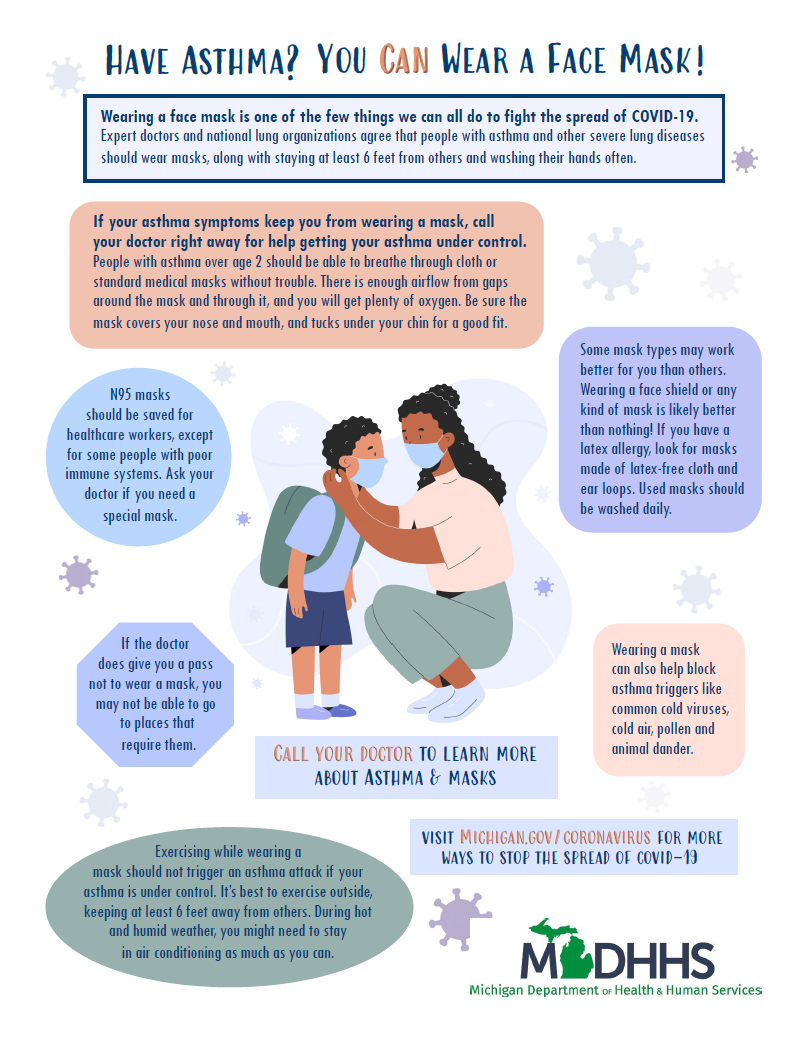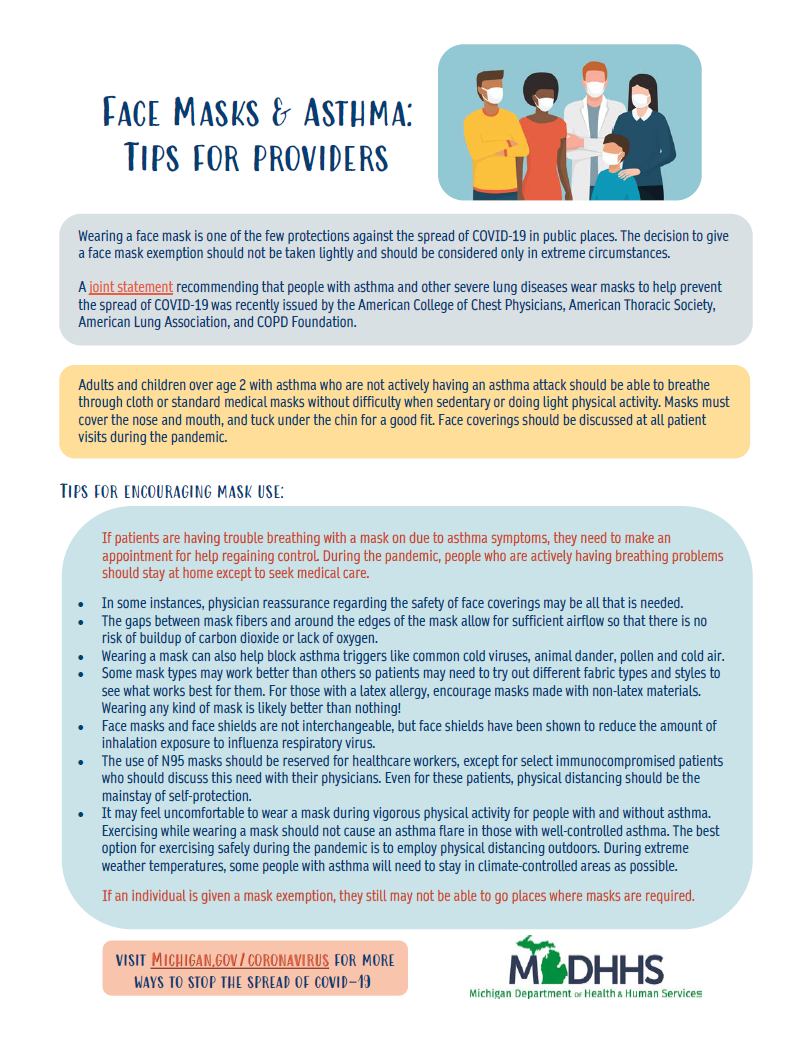MDHHS Provider and Patient Infographics Promote Mask-Wearing by People with Asthma

There has been some confusion around whether or not people with asthma can or should wear masks during the pandemic. The Michigan Department of Health and Human Services Asthma Program worked with Michigan experts and drew on national resources to develop two new infographics to promote mask-wearing.
The
patient version explains that it is safe to wear masks, and provides information about asthma self-management, mask type, and how to get more help if needed. The
provider version states that mask exemptions should be rare, and gives tips for helping asthma patients during this time.
Please use and share these infographics widely – wearing masks is one of the few things we can all do to limit the spread of COVID-19.

If you have any questions about these infographics, please contact Tisa Vorce,
VorceT@michigan.gov.
Adult and pediatric patients presenting to the Michigan Medicine Allergy clinic between 9/10/2020 and 10/23/2020 were surveyed on their demographics, asthma diagnosis, perceived control of asthma, and mask type worn. Pulse oximetry reading was performed while wearing the mask and respondents reported their duration of mask use prior to the measurement. Mask use did not decrease SpO2 levels in patients with or without asthma, regardless of type worn. Neither duration of mask use nor perceived asthma control correlated with a decreased SpO2 level.
As we all return to work, school and public places, face coverings and masks have become essential tools in our fight against COVID-19. Wearing a face covering raises many questions for people with asthma and the Allergy and Asthma Foundation of America answers these questions.
AAFA’s COVID-19 and Asthma Toolkit for Schools is designed as a supplement to (not replacement for) current Centers for Disease Control and Prevention (CDC), state and school district guidelines. It includes checklists for school nurses and other staff, a respiratory symptoms chart (in English and Spanish) to differentiate between allergy, cold, flu and COVID-19 symptoms and much more!
Guidance document for parents from the University of Michigan: Should Children with an Underlying Medical Condition Attend School In-person?
EPA recommends precautions to reduce the potential for airborne transmission of the virus. These precautions include increasing ventilation with outdoor air and air filtration as part of a larger strategy that includes social distancing, wearing cloth face coverings or masks, surface cleaning and disinfecting, handwashing, and other precautions.
Information on COVID-19 and Asthma from the American Academy of Allergy, Asthma & Immunology, including info on asthma control, steroids and seasonal versions of coronaviruses.
The American College of Allergy, Asthma and Immunology (ACAAI) has issued a statement to address concerns over whether patients should continue routine medications, including inhaled and intranasal corticosteroids during the coronavirus disease 2019 (COVID-19) pandemic.
An American Thoracic Society-led international task force has released a guidance document to help clinicians manage COVID-19 patients in the face of minimal empirical evidence to guide treatment.
A fact sheet by the National Association of Chronic Disease Directors that includes general information about COVID-19 and specific self-management tips for people with asthma.